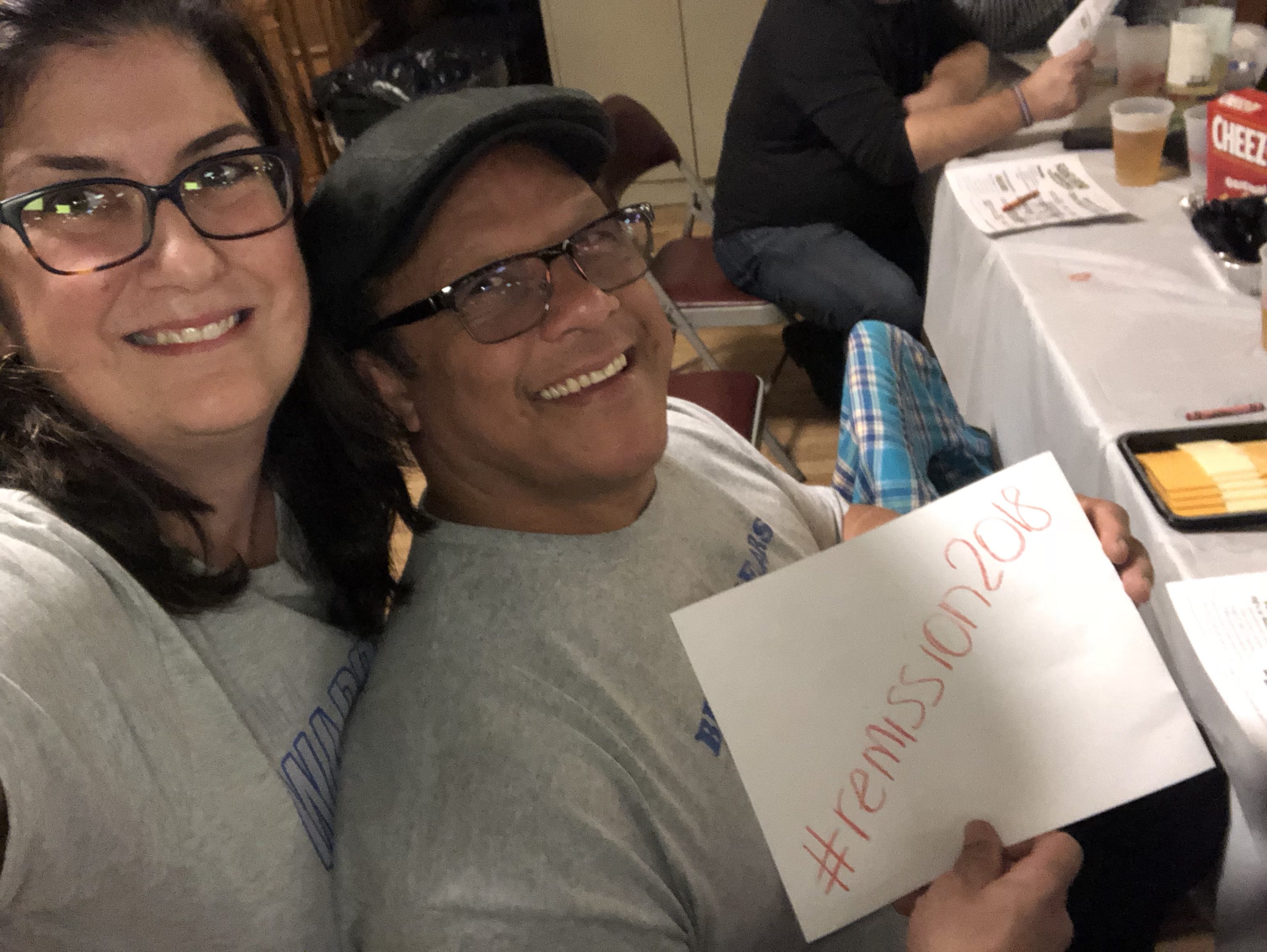
Margaret Small was on her way to her job as a 1st grade teacher in New York City in October of 2015 when she felt a horrible pain in her left side. “Every time I drove over bumps in the road, it seemed to get worse.” She turned around for home and called her doctor. After the appointment she was diagnosed with diverticulitis, but a follow up CT scan would show an unexplained mass in her digestive tract and a colonoscopy was scheduled for after the winter holidays.
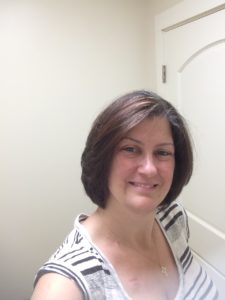 Margaret awoke from that colonoscopy to her doctor telling her she had a tumor and needed to see a surgeon immediately. “Cancer was never in my world; never in my realm of thought process,” she recalls. She immediately called a cousin, who is a head nurse at Mount Sinai Hospital, and her sister Irene, also a nurse. Margaret also had to decide when and how to break this devastating news to her family, especially her mother. Telling her mother about her cancer diagnosis was “the worst day of [her] life.”
Margaret awoke from that colonoscopy to her doctor telling her she had a tumor and needed to see a surgeon immediately. “Cancer was never in my world; never in my realm of thought process,” she recalls. She immediately called a cousin, who is a head nurse at Mount Sinai Hospital, and her sister Irene, also a nurse. Margaret also had to decide when and how to break this devastating news to her family, especially her mother. Telling her mother about her cancer diagnosis was “the worst day of [her] life.”
With her family working to get the ball rolling, a surgeon was found at Mount Sinai and her colon resection was set for February. “They marked me and it was supposed to be endoscopic,” Margaret remembers, but the extent of the cancer meant surgery was far more invasive than expected as the surgical team worked to remove the tumor from her body. After the surgery she would learn she had stage III disease.
Her doctors questioned why a 42-year-old would end up with colon cancer. “There’s a lot of anger, a lot of frustration, a lot of whining about ‘how did this happen?’ We make a lot of stupid mistakes when we’re younger. I had gotten my act together, I was eating super healthy, and lost 30 lbs. I was running eight miles a day and working out. I was doing all the right things; all the things you’re supposed to do.” As we see far too often, young adults diagnosed with colon and rectal cancer are doing everything right, yet the disease still strikes. 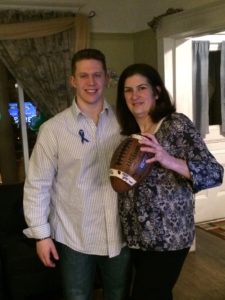
With a family history of breast cancer, Margaret had been active in advocacy and fundraising for breast cancer screening and prevention. But her team of doctors could not connect her young onset colon cancer to that family history, so genetic testing was recommended – a common and important step for patients diagnosed before the age of 50.
Genetic testing showed Margaret had Lynch syndrome, an inherited cancer syndrome associated with a genetic predisposition to different cancer types. This meant Margaret had a much higher risk for developing colorectal and other cancers in her lifetime. It also meant it was important for her entire immediate family to get genetic testing as well. Fortunately her mother and all four siblings are not carriers.
As Margaret recovered from surgery and started treatment, she couldn’t get one conversation out of her thoughts. “I remember [my surgeon] saying, ‘What’s crazy is, from the day of your surgery to today, I’ve diagnosed 3 or 4 young people between the ages of 35-45, all with stage II or later colorectal cancer.’ That resonated with me and stayed with me for the longest time.” It meant Margaret wasn’t the rarity that many she encountered after her diagnosis thought the was. Something was causing more and more young adults to be diagnosed with a cancer they shouldn’t be getting.
Margaret credits her faith in God and her supportive family for her success story. “I didn’t reach out to anybody [during my cancer treatments] because I felt inner strength and the support of my family. I’m forever blessed that my support didn’t end after treatment. My support grew and grew.” It was that undying support from her family that has allowed Margaret to share her story. “Anyone who listens to my story is helping me accept that I had cancer. I don’t know if I really accepted that I had cancer. I am now learning to accept it as part of my life.”
After finishing treatment, Margaret has made it her mission to raise awareness about this disease, especially in young adults. She has also started a fundraiser that benefits the Colon Cancer Coalition called Beers4Rears. It is held in Brooklyn each April. Whenever the opportunity arises Margaret shares awareness information and even includes a letter telling her story. Her message: “No one should ever have to say the words to anyone in their family, ‘I have cancer.’” And as a carrier of Lynch syndrome, preventative screening and monitoring by her health care team will hopefully ensure that Margaret never has to say those words again.
RETUN TO FACES OF BLUE LEARN MORE ABOUT YOUNG ADULT COLORECTAL CANCER LEARN MORE ABOUT LYNCH SYNDROME BLUE RIBBON WARRIOR

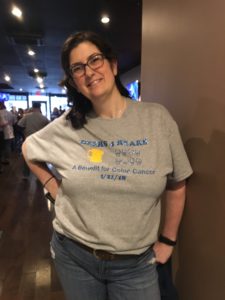
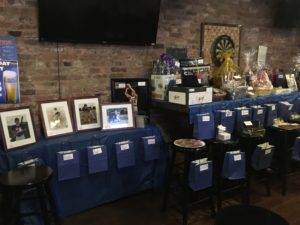

Great job Margaret. Very proud of your fight and that you’re my sister. Love You